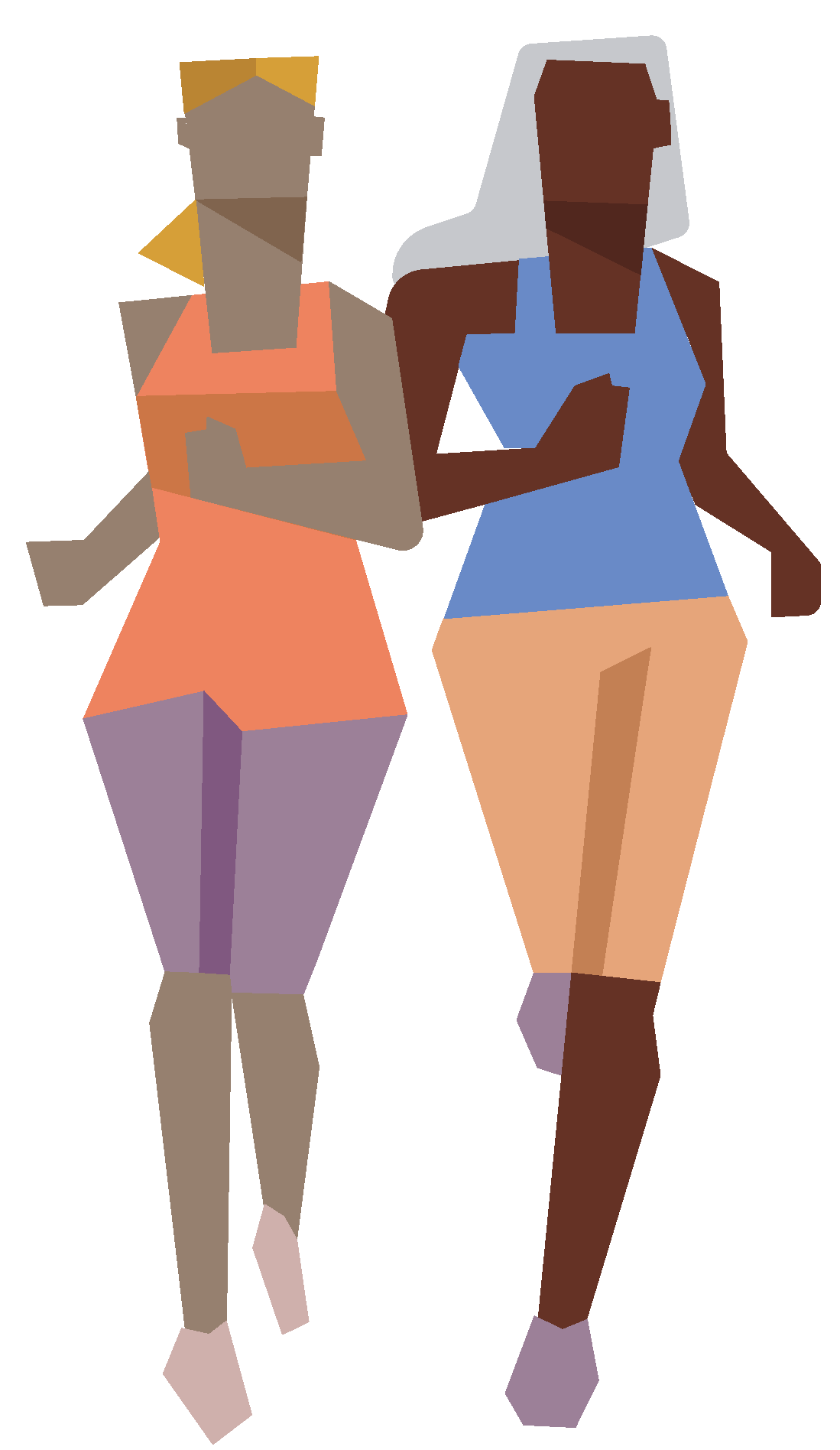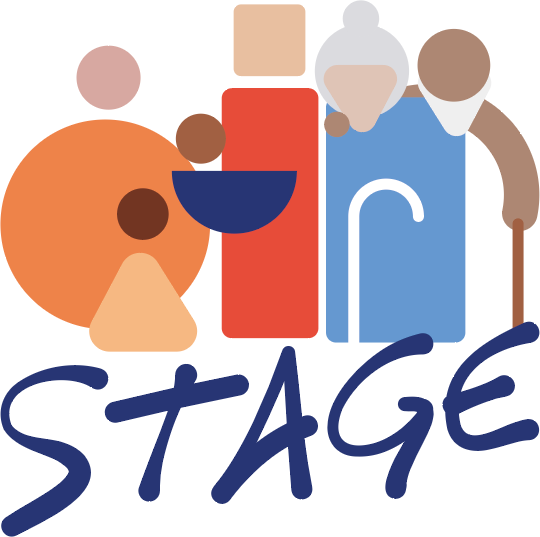
WHAT ARE WE DOING?

STAGE IS RESEARCHING THE ROOT CAUSES OF UNHEALTHY AGEING BY:

Studying and interrogating the ethical, historical and societal barriers hindering healthy ageing through the life-course;

Mapping the geographical and architectural structure of European environments to define and develop a healthy ageing index and atlas;

Questioning the life-course and generational trajectories of multi-morbidity in cohorts and biobanks;

Investigating the molecular hallmarks of ageing and how they reflect the interaction between a person’s environment (exposome) and genetics (genome).
STAGE IS WORKING RESPONSIBLY WITH FINDABLE, ACCESSIBLE,
INTEROPERABLE AND REUSABLE (FAIR) DATA FROM HUMAN POPULATIONS TO:

Design open-source artificial intelligence (AI)-based methods for healthcare, based on guidelines for trustworthy and deployable AI in healthcare, to predict multi-morbidity trajectories;

Continue sustaining and managing access to FAIR European health and environmental data catalogues;

Demonstrate how European health and environmental data catalogues can integrate environmental and economic models to inform policymaking.


MOVING ON FROM OBSERVATIONS TO IMPLEMENTATION, STAGE IS USING ITS BUSINESS AND ACADEMIC PARTNERSHIP TO:

Build a digital platform integrating person-centred applications and tools for prevention and care which reduce the risk of multi-morbidity through ageing;

Ascertain the possibility of embedding these digital solutions into life-course informed prevention programmes and clinical practice.
STAGE IS DEVELOPING IMPACTFUL
COMMUNICATION AND
EXPLOITATION TO:

Translate the knowledge gained into recommendations for public health policies;

Engage with stakeholders, including citizens and civil society;

Promote innovative solutions for healthy ageing;

Contribute to reducing stigma related to ageism and health inequalities.

WORK PACKAGES
The STAGE project is divided into ten work packages. These break the project into smaller, manageable tasks and outputs and are designed to enable the project to realise its objectives.
IMPACT
The STAGE research will lead to several key exploitable results. These are the main project outputs that can be used by others outside the project – researchers, policymakers or the public, for example – and create impact.
SUBSCRIBE TO OUR NEWSLETTER
Join our mailing list to receive the latest project news
Your subscription
By subscribing to this list, you accept to receive information about events, news and/or newsletters about the STAGE project. The personal data collected will only be used to send you the newsletter(s) you chose to opt in to above. You can change your mind at any time by clicking the "unsubscribe" link in the footer of any email you receive from us. We will treat your information with respect.

